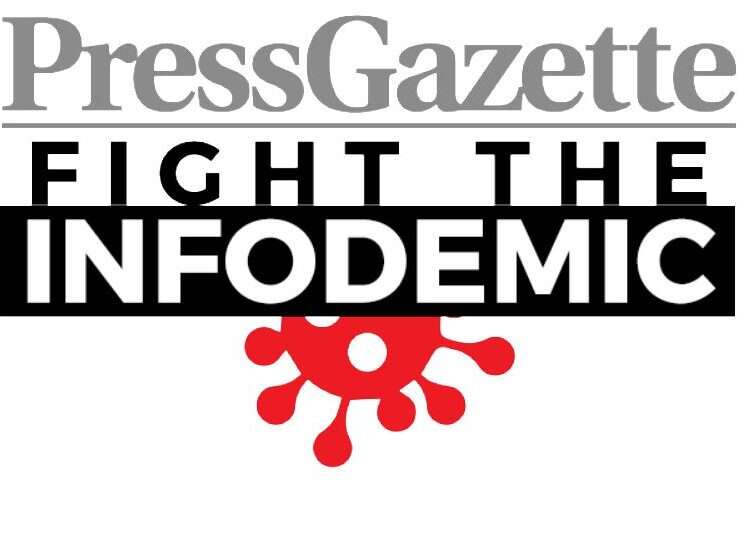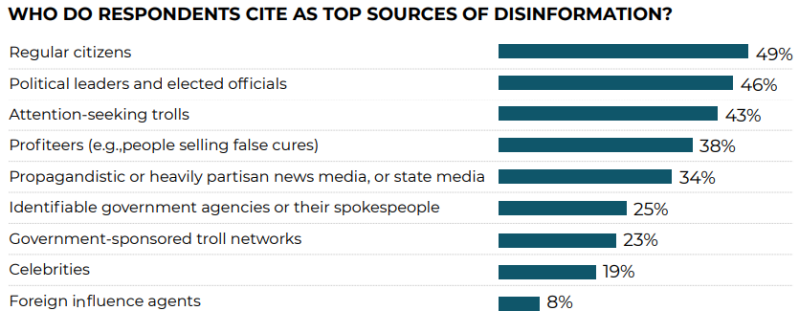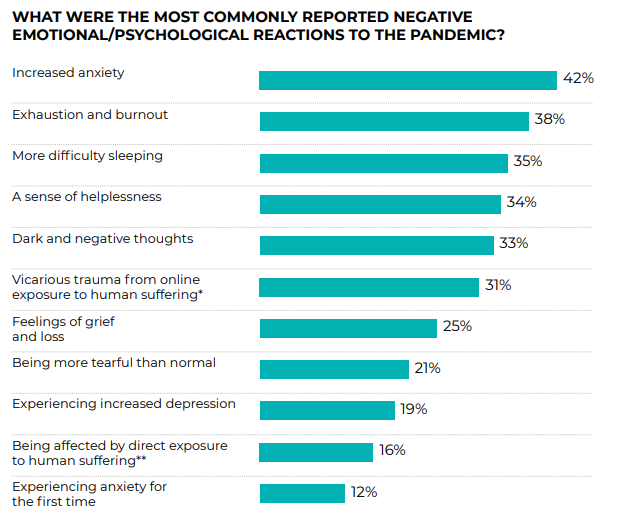
Journalists have been confronted with a “tsunami” of Covid-19 disinformation since the start of the pandemic including a concerning amount from governments and state officials, according to a new study.
Of the 1,406 journalists who participated in the global survey from the International Centre for Journalists and Tow Center for Digital Journalism at Columbia University, 28% said they were encountering disinformation connected to the coronavirus many times a day.
Some 35% saw it many times a week and 18% weekly – meaning 81% were seeing it at least once a week.
“This will be the most enduringly difficult professional period many have experienced during their careers,” the report said.
“There is the added complication of an information ecosystem that is too tolerant of dis/misinformation and unreliable sources, including officials and politicians who politicise the crisis at the expense of truthfulness and accountability.
“Despite the challenges, a significant opportunity exists for journalism as a field to build on the renewed levels of mission, audience engagement and clearly demonstrated need for accountability reporting the pandemic has highlighted.”
The journalists, who work across print, online and broadcast in 125 countries, mostly from the US, India, Nigeria, UK and Brazil, identified political leaders and elected officials (46%) as only just behind regular citizens (49%) for their part spreading disinformation.
A quarter had also seen disinformation from identifiable government agencies or their spokespeople.
A third also pointed to propagandist or heavily partisan news media or state media as playing a significant part in the spread of disinformation.

Facebook was the platform most frequently identified (66%) as the place where Covid-19 disinformation is spreading prolifically, followed by Twitter (42%) and Whatsapp (35%).
Eight in ten (82%) of the journalists surveyed said they had reported disinformation or misinformation to at least one of the platforms during the pandemic – 25% had reported content to Facebook. But almost half (46%) were dissatisfied with the platforms’ responses.
Almost a quarter (23%) journalists had increased their reliance on user-generated content but 22% were collaborating more frequently on verification within online communities. Almost a quarter (23%) journalists had increased their reliance on user-generated content but 22% were collaborating more frequently on verification within online communities.
Many of the journalists said their news outlets were responding proactively to counter the infodemic: 7% had created a specific Covid-19 disinformation beat, 29% said they were producing fact-checks and debunks, and 29% said they were using digital verification tools to expose false video, images and memes.
A fifth of the journalists also said their news organisations had collaborated with others or with NGOs or academics to investigate Covid-19 disinformation, while 12% had engaged their audiences in fact checking or media literacy projects to combat the spread of false content.
The ICFJ suggested better training could help the journalists more effectively respond to the threat of disinformation.
The report said: “Finding ways to both report with, and engage,
communities while remaining physically remote is a particularly difficult challenge, especially considering the prolific levels of disinformation and toxicity on social media platforms.
“In terms of their most urgent needs, journalists indicate a high degree of interest in training in new reporting skills and advanced verification techniques. These could enable them to accomplish better quality journalism that also more effectively responds to the threat of disinformation.
“Addressing these needs – along with those related to mental health and physical safety – is vital to avoid compounding the damaging impacts of Covid-19 on journalism as the pandemic wears on.”
The survey found the mental health impact of covering the pandemic has been the most difficult challenge facing seven in ten journalists worldwide this year so far.
But only a quarter said they had been offered psychological counselling even though 62% said help with managing their mental health and well-being was an important need.

Other concerns raised by the survey include that:
- 89% had been affected by at least one austerity measure in their news organisation since the pandemic began
- Two-thirds feel less secure in their jobs
- Three in ten said their news organisations had not supplied field reporters with any protective equipment
- A fifth said online harassment had got much worse.
The report said: “This will be the most enduringly difficult professional period many have experienced during their careers.
“There is the added complication of an information ecosystem that is too tolerant of dis/misinformation and unreliable sources, including officials and politicians who politicise the crisis at the expense of truthfulness and accountability.
“Despite the challenges, a significant opportunity exists for journalism as a field to build on the renewed levels of mission, audience engagement and clearly demonstrated need for accountability reporting the pandemic has highlighted.”
Email pged@pressgazette.co.uk to point out mistakes, provide story tips or send in a letter for publication on our "Letters Page" blog
